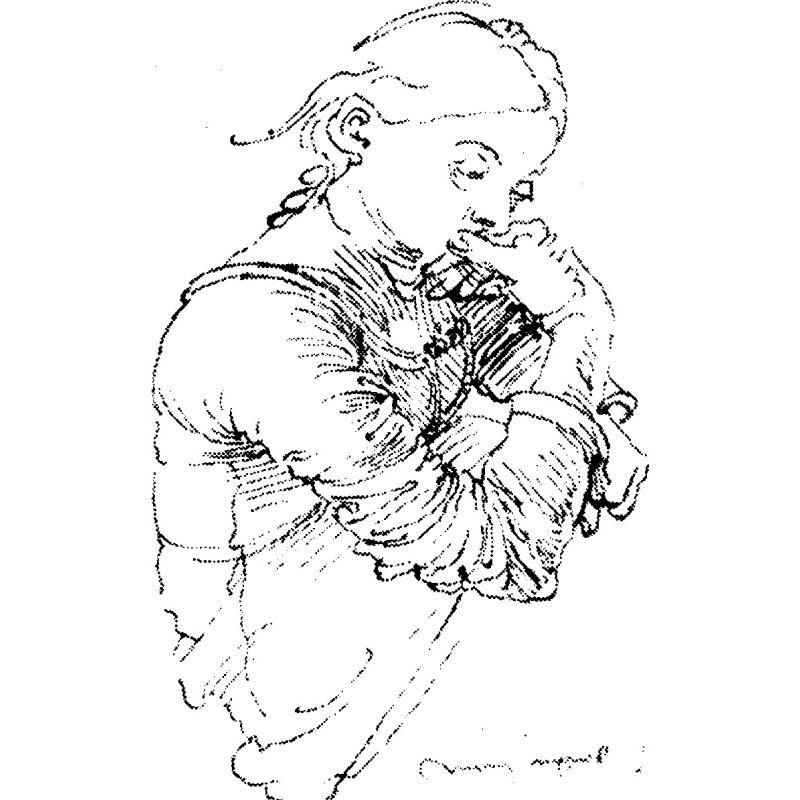Ethology in psychiatry
 Instant download
Instant download
after payment (24/7)
 Wide range of formats
Wide range of formats
(for all gadgets)
 Full book
Full book
(including for Apple and Android)
Description: The book “Ethology in Psychiatry” is devoted to one of the newest and most relevant aspects of modern psychiatry - the objective analysis of behavior in mental illness. This direction arose at the intersection of clinical psychiatry, psychology, anthropology, and ethnography, but its productive capabilities were finally proven only 10 years ago thanks to the efforts of biologists who developed methods for objective analysis of behavior in line with ethology. Since 1984, the Department of Psychiatry of the Faculty of Advanced Training for Doctors of the Crimean Medical Institute together with the Crimean branch of the All-Union Society of Psychologists and the Department of Anthropology of Moscow State University. M. V. Lomonosova holds annual colloquiums dedicated to discussing various aspects of nonverbal human behavior in normal conditions and in mental disorders diseases. This monograph summarizes the main issues discussed at the Crimean colloquia, the full texts of the reports of which were published earlier (A. N. Kornetov, V. P. Samokhvalov et al., 1985, 1986; V. P. Samokhvalov, A. A. Korobov et al., 1986; V. P. Samokhvalov et al., 1987). At the I Crimean Colloquium (1985) aspects of the methodology for assessing nonverbal behavior were discussed, at the II Colloquium (1986) - various issues of assessment, ontophylogenesis and historiogenesis of facial expressions and gestures, at the III-V Colloquia (1987, 1988, 1989) - the communicative function of nonverbal behavior. The book Ethology in Psychiatry is based on two principles. The first, traditional for modern psychiatry - multifactorial, is that clinical characteristics are assessed together with behavioral, anthropomorphoscopic and environmental data (A. N. Kornetov, V. P. Samokhvalov, 1981, 1984); Moreover, it is believed that the complexes of phenotypic characteristics that describe a person are hypothetically connected systems, each of which can be translated into another system. This means that phenomenology can be put in accordance with a system of behavioral signs or with a system of anthropomorphoscopy. The degree of objectivity in describing systems varies. If clinical signs are identified largely subjectively and clinical assessment depends on point of view, then assessment of behavior is more objective. In particular, the clinician may doubt the distinction between depression and subdepression, while at the same time he can objectively identify facial expressions of suffering or crying. Finally, the subjective element is completely absent when identifying anthropomorphological characteristics, most of which are quantitative. The second principle, evolutionary, is that all sets of phenotypic traits must be considered in ontophylogenetic and historiogenetic aspects. Moreover, the higher the objectivity (measurability) of a system of characteristics, the more likely its changes in phylo-ontogenesis; the less the possibility of objectively determining the system, the more likely its development in historiogenesis. For example, clinical manifestations and their assessment depend to a greater extent on the time and culture in which they are assessed (historiogenesis), while the underlying biological patterns are realized in phyloontogenesis. Our ideas about multifactorial and evolutionary approaches underlying the book. The impetus for publishing the book “Ethology in Psychiatry” was the desire to equip clinicians with a new diagnostic method. Although the classics of psychiatry gave us unsurpassed in their accuracy descriptions of the behavior of mentally ill patients (S. S. Korsakov, 1900; V. P. Osipov, 1931; R. Kraft-Ebing, 1895), still to this day the diagnosis of mental illness is based on description of the patient’s subjective experiences, his thinking, emotions, memory. In old manuals and some modern publications (P. M. Sukharebsky, 1966; K. Leonhard, 1976) one can find a description of “living pictures” of pathological behavior, but in general, insufficient attention is paid to behavior disorders. Psychiatry in the first half of the 20th century, organically connected with physiology and pathological physiology, and later gradually delved into detailed phenomenology. The mechanisms of mental illness are of less interest to the psychiatrist, and yet the entire range of psychotropic drugs that are the property of the “neuroleptic era” is tested on animals, including primates, in which patterns of psychopathology are manifested precisely in disorders of behavior and communication. With the exception of individual works, little research has been carried out on the comparative evolutionary analysis of models of psychopathology with its real manifestations in humans, precisely because the instrument for the objective study of human behavior has not been sufficiently developed (V.P. Samokhvalov, N.A. Kornetov, 1985). Another significant reason for the usefulness of behavioral research in psychiatry, are the requirements of everyday practice. Diagnosing a child’s behavior is of particular value. We link behavioral research in psychiatry not only to the clinic, but also to more fundamental problems in behavioral biology. If indeed some neurotransmitter and biochemical systems can mark carriage and manifestations of mental illness, which is again confirmed in the works of G.V. Morozov, V.M. Morkovkin et al. (1985, 1987) and P. McGuffin, E. Sturt (1986), then a connection between pathochemical markers and morphological and behavioral markers is quite possible. Psychiatry also needs an objective definition of the concepts of mannerism, pretentiousness, ambition, negativism, reduction of energy potential, etc. no less than pathopsychology. Even such a largely socialized branch of psychiatry as rehabilitation can be objectified by assessing complex forms of behavior in the communication system. The successes of modern ethology, behavioral genetics, psychology, and neurophysiology allow us to hope that a systematic study of human behavior in normal conditions and in mental illness will contribute to the development of a biological direction in psychiatry, which alone can be associated with elucidating the main issue of psychiatry - the causes of the pathological process. It is no coincidence that the desire to acquaint psychiatrists with the possibilities of ethology, since this discipline is a kind of “bridge” between biology and psychiatry, physiology and psychiatry, psychology and psychiatry, i.e. In ethology, there are the beginnings of a universal “language” that can become the property of many related disciplines (E. N. Panov, 1983; M. McGuire, 1979). Back in 1963, Academician V.N. Chernigovsky wrote about ethology: “It is impossible not to take it into account. It is simply indecent not to know about it. But not analyzing it is a very serious omission" (quoted from E.N. Panov, 1983, p. 630). More than once ethologists, including those collaborating with psychiatrists (R. Chauvene, 1972; N. Tinbergen, 1972; G . Tembrock, 1977; 1982; D. Dewsbury, 1981), as well as psychiatrists oriented in ethology (Ts. P. Korolenko, V. G. Kolpakov, 1976, 1985; I. A. Polishchuk, 1981; V. P. Samokhvalov, 1984; M. McGuire, 1977), called for joint research, which theoretically should be an important catalyst for the development of biological psychiatry. Repeatedly It was also emphasized that I. M. Sechenov and I. P. Pavlov were at the origins of this direction. Domestic scientists since the beginning of the 20th century. until recently, ethology was successfully used to solve problems of anthropogenesis, physiology and pathological physiology, behavioral genetics (V. A. Wagner, 1913; N. N. Ladygina-Kote, 1935; I. A. Tikh, 1950; L. N. Trut , 1978; E. N. Panov, 1978, 1985; P. E. Fabri, 1983; L. V. Krushinsky, 1986; M. A. Deryagina, 1985, 1986). ethological approach to the study of mental illness. In this case, only the external plane of behavior and its typology will be considered. We dwell on issues of the context of behavior and its physiology only insofar as this is necessary for understanding the diagnosis behavior. Consequently, at this stage, aspects of motivation, introspection, and mechanisms are not considered; we are only interested in recognizing forms of behavior. At this stage, behavior is understood as “the life activity that the system implements in its external environment” (G. F. Khrustov, 1986). The authors believe that the book is an introductory course to ethological psychiatry, and in the future they intend to cover in more detail various aspects of the typology, diagnosis, mechanisms and evolution of pathological behavior. Employees of the Department of Psychiatry of the Faculty of Advanced Training of Physicians of the Crimean Medical University took part in the work on the monograph “Ethology in Psychiatry”. Institute and the Crimean Scientific Medical and Biological Center (A. N. Kornetov, V. P. Samokhvalov, A. A. Korobov, A. V. Nazarov, V. A. Stroevsky, O. V. Khrennikov), Research Institute of Mental Health of the Tomsk Scientific Center of the USSR Academy of Medical Sciences (N. A. Kornetov), Department of Anthropology of Moscow State University (M. A. Deryagina), Institute of Ethnography named after. Miklouho-Maclay Academy of Sciences of the USSR (M. L. Butovskaya), Research and Design Institute of Instrument Engineering (V. S. Krylov), Department of Psychiatry of the Vladivostok Medical Institute (M. D. Stashuk), practical psychiatrists (V. Ya. Gubernik, V. N. Klinkov, V. I. Egorov, N. V. Verbenko) with the participation of A. Tannus (Syria). The authors express sincere gratitude to N. A. Fedorenko for assistance in data processing, L. S. Nazarova for discussion results, V. N. Subbota - for assistance in the technical preparation of the manuscript, the staff of the laboratory of psychopharmacology of the Sukhumi Primatological Center of the USSR Academy of Medical Sciences, its head V. G. Startsev and students Department of Anthropology, Moscow State University A. G. Semenov and O. N. Zaryankova for assistance in conducting research.
Data sheet
- Name of the Author
- Виктор Самохвалов Павлович
- Language
- Russian
Reviews
Важливий внесок у сучасну психіатрію
Книга «Етологія в психіатрії» є справжнім відкриттям для тих, хто цікавиться психічним здоров'ям та поведінкою людини. Автори вдало поєднують різні наукові дисципліни, такі як психіатрія, психологія та етологія, щоб створити новий підхід до розуміння психічних захворювань. Особливо вражає об'єктивний аналіз поведінки, який дозволяє клініцистам краще розуміти симптоми та прояви психічних розладів. Книга містить багато корисних даних про невербальну поведінку, що є надзвичайно важливим у діагностиці. Я вважаю, що це видання стане незамінним інструментом для лікарів-психіатрів, які прагнуть покращити свої навички та знання в цій складній області. Рекомендую всім, хто працює в сфері психічного здоров'я, ознайомитися з цією книгою!






















